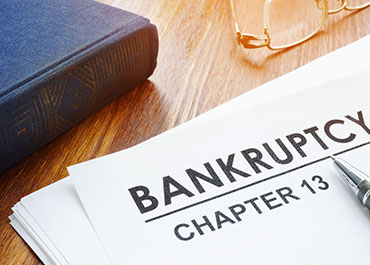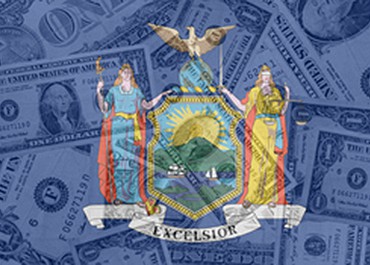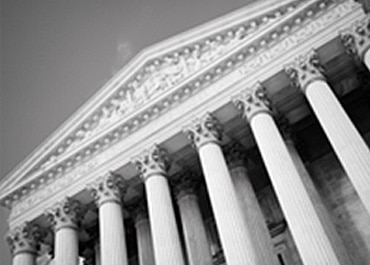
Queenie, Ltd. v. Nygard Int’l,[1]‘s Sweet 16 Bankruptcy is not reserved for the destitute individual.[2] It’s more useful for those with something to save than nothing to lose.[3] For debtors, extending the automatic stay to its farthest domain seems the immediate strategy. Automatic Stay for Whom? It’s not hard to imagine an individual debtor and their business as defendants in an action arising from the business’ conduct. The universally accepted rule is that “the automatic stay does not apply to non-debtors.”[4] For whom do you file a case? The individual? The…Read More
![Avoiding Clouds on Homestead Exemptions[1]](https://www.bankruptcystrategies.com/wp-content/uploads/2020/08/Avoiding20Clouds20on20Homestead20Exemptions20DPLIC2039862873-thumb-350x233-79770-thumb-350x233-79755.jpg)
We represent a debtor with a substantially younger, non-debtor spouse and equity in their home, exceeding the debtor’s homestead exemption. The home is owned as tenants in the entireties. This means that the surviving spouse inherits the property free and clear of the deceased spouse’s creditors. The spouse’s youth dissuaded the chapter 7 trustee from trying to sell the home free and clear of both owner’s interests.[2] The trustee got creative. She tried selling just the debtor’s interest in the house. The buyer gets the right to live with the…Read More

Until recently, New York State residents with rent stabilized apartments risked losing their homes in bankruptcy. This unhappy state ended in the recent decision, In the Matter of Mary Veronica Santiago-Monteverde. etc., (Santiago-Monteverde.”)1 New York State’s highest court ruled that rent stabilized leases are “public assistance benefits” which are unavailable to be converted to cash to pay creditors. The Bankruptcy Context Filing a bankruptcy case creates an “estate” comprised of all the debtor’s property. In chapter 7 cases, a trustee is appointed to administer that estate. Trustees administer cases by selling marketable “non-exempt”…Read More

Many things precipitate chapter 11 reorganization cases. Frequently, it’s a response to a judgment creditor’s efforts to enforce its money judgement. Those efforts interfere with customer relations, cash flow and the judgment debtor’s economic survival. Smart judgment creditors realize that crushing their judgment debtor won’t get them paid. Judgement debtors and creditors may not agree on what is destructive. That’s where a chapter 11 reorganization case comes in. It stops the enforcement efforts while the judgment debtor attempts to reorganize. While valuable, reorganization cases are not inexpensive. Cash-strapped judgment debtors…Read More

On September 16, 2014, New York courts announced rules banning collecting consumer debts which were: a.) not incurred; b.) previously paid; or c.) subject to statute of limitations defenses. The new rules require: a.) creditors submitting affidavits for default judgments with detailed proof; b.) that default applications contain the debtor’s original credit agreement, a detailed accounting of each stop in the debt’s chain of ownership and documentation that identifies the target of the default judgment as the correct debtor; c.) an affidavit from the creditor’s attorney that the statute of…Read More

We can’t overemphasize the importance of filing accurate schedules and statements in a bankruptcy case. Regardless of lawyers’ skills, clients must review their schedules carefully before signing them. The recent decision in Crawford v. Franklin Credit Management Corp.1 (“Crawford”) illustrates the dangers of inaccurate schedules and a lucky “escape hatch.” The Debtor filed a chapter 13 case (the “Case”). Her schedules and statements omitted her fraud claims against a predatory lender (the “Claims”). The Case was dismissed for the Debtor’s failure to pursue it. Later, the Debtor sued the lender asserting these…Read More

A Good Bill Which Can Be Improved with Little Effort 1 2 The foremost cause of bankruptcy filings is “medical debt.” Medical salvation can yield financial ruin. S. 2471 Recently, Senators Elizabeth Warren and Sheldon Whitehouse submitted the “Medical Bankruptcy Fairness Act of 2014” S. 2471 (the “Act”) to the Senate Judiciary Committee. The Act removes an obstacle to relief under chapter 7 of the United States Bankruptcy Code (the “Code”) faced by consumers with above-median income, laden with “medical debt.” 3 It removes the impact of failing the “means test”: a.)…Read More

On June 12, 2014, The United States Supreme Court determined that Bankruptcy Code § 522(b)(3)(C) does not exempt inherited Individual Retirement Accounts (“IRAs”) from creditors’ claims in individual bankruptcy cases. Clark v. Rameker, 134 S.Ct. 2242 (2014). Background Ms. Clark inherited her mother’s $450,000 IRA in 2001. She filed for bankruptcy relief in 2010 after spending the IRA down to $300,000. Her bankruptcy schedules listed the IRA as exempt from paying her creditors’ claims. Ms. Clark asserted that Bankruptcy Code § 522(b)(3)(C)’s exempting “retirement funds to the extent that those funds…Read More

I am an entrepreneur with a business in New York. My business is having problems. How do I survive? Entrepreneurs are optimists by nature. Recognizing there’s a problem is a big step in “entrepreneur rescue.” Next comes identifying the problem, then how to fix the problem, and finally, how to fix the fallout the problem created. Your accountant can help by identifying the answers to the following: Is it cash in, or cash out? What’s causing the unhealthy imbalance? Can the cause be fixed? If so, how and at what…Read More

